Humans
Sign up for our newsletter
We summarize the week's scientific breakthroughs every Thursday.
-
 Life
LifeA healthy old age may trump immortality
Despite disagreements about what aging is and isn't, scientists have reached a radical consensus: It can be delayed.
-
 Neuroscience
NeuroscienceThe brain’s blueprint for aging is set early in life
The brain's decline may mirror its beginning, offering clues to aging.
-
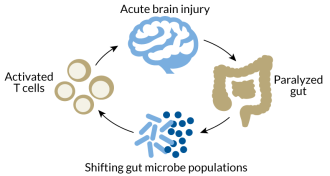 Neuroscience
NeurosciencePost-stroke shifts in gut bacteria could cause additional brain injury
The gut’s microbial population influences how mice fare after a stroke, suggesting that poop pills might one day prove therapeutic following brain injury.
-
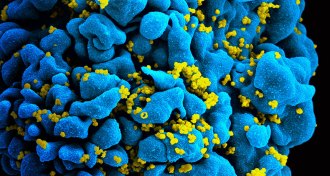 Health & Medicine
Health & MedicineUnprotected sex less risky if HIV-positive partner on antiretroviral therapy
The risk of HIV transmission during unprotected sex drops drastically if the HIV-positive partner is taking antiretroviral therapy.
By Meghan Rosen -
 Anthropology
AnthropologyEarliest evidence of monkeys’ use of stone tools found
600- to 700-year-old nut-cracking stones from Brazil are earliest evidence that monkeys used tools.
-
 Health & Medicine
Health & Medicine‘Cracking the Aging Code’ tackles aging from evolutionary perspective
In 'Cracking the Aging Code', theoretical biologist Josh Mitteldorf and writer Dorion Sagan take a different approach to the science of growing old.
-
 Animals
AnimalsDocumentary looks for meaning in Koko the gorilla’s life
'Koko — The Gorilla Who Talks' documents the nearly 45-year relationship between researcher Penny Patterson and Koko, the subject of an ape sign language project.
By Erin Wayman -
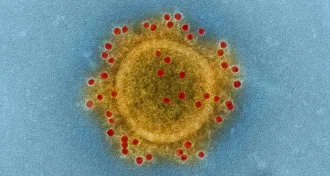 Health & Medicine
Health & MedicineHow one patient spread MERS to 82 people
One person passed the Middle East respiratory syndrome virus to 82 others during an outbreak in South Korea in 2015.
-
 Oceans
OceansUnderwater city was built by microbes, not people
Submerged stoneworklike formations near the Greek island of Zakynthos were built by methane-munching microbes, not ancient Greeks.
-
 Life
LifeArtificial hearing has come a long way since 1960s
Scientists envisioned artificial hearing 50 years ago. Today, they are working to make it superhuman.
-
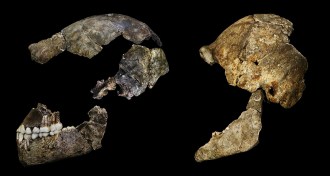 Anthropology
AnthropologyNew dating suggests younger age for Homo naledi
South African fossil species lived more recently than first thought, study suggests.
By Bruce Bower -
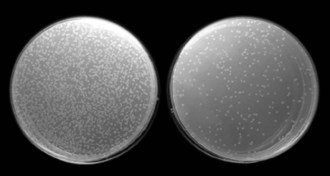 Neuroscience
NeuroscienceRewarding stimulation boosts immune system
Activating feel-good nerve cells boosts mice’s immunity, a new study suggests.